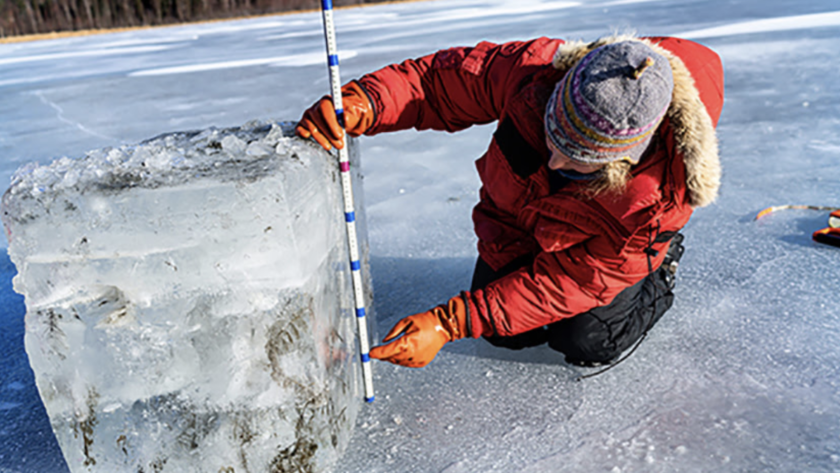Fewer than half of consumers polled across five continents believe in humanity’s ability to avert a climate crisis within their lifetimes in Epson’s Climate Reality Barometer.
Just 46 per cent of all respondents among 15,000 consumers polled across Australia, Asia, Europe, North America and South America said they were “very” or “somewhat” optimistic, although that did outweigh the 27 per cent who expressed they are “very” or “somewhat” pessimistic.
As the Intergovernmental Panel on Climate Change (IPCC) reports that some human-driven climate change will take millennia to reverse, and given a litany of global events – including the warmest July ever recorded, wildfires in Europe, North America and Asia, and floods in China, Columbia and Germany – Epson’s Climate Reality Barometer’s findings suggest “a triumph of optimism over evidence and a damaging Climate Reality Deficit”.
Timed to help frame discussions at COP 26, tech company Epson says its Climate Reality Barometer aims to raise greater public awareness of climate change impacts, influence transformative business decisions, and better inform policymakers.
According to Epson, the most popular reasons supporting this optimism are growing public awareness of climate change (32 per cent), the ability of science and technology to provide solutions (28 per cent) and the move towards renewable energies (19 per cent).
“This is a wake-up call for everyone – governments, businesses and individuals – to work together, make the right decisions and inspire the right actions moving forward,” said Epson Australia and New Zealand MD, Craig Heckenberg.
He highlighted that Australia has warmed on average by 1.4 degrees centigrade since national records began in 1910 (according to its science and weather agencies). This has led to an increase in the number of extreme heat events, as well as increased fire danger days (source).
Despite this, 37.7 per cent of people surveyed as part of the Epson Climate Reality Barometer in Australia, are optimistic that the world will avert a climate disaster in their lifetime. The optimism is driven most by the belief that people are more aware of climate change dangers (36.6 per cent), effective government action (20.6 per cent) and the opportunity to use science and technology to solve problems (19.6 per cent).
On the other hand, 33.5 per cent of Australians were pessimistic that we will avert a climate disaster in their lifetime. Those who are pessimistic are driven mostly by a feeling that there’s a lack of action (53.5 per cent) and by a belief that people are not aware of climate change dangers (20.3 per cent).
Many Australians, nearly a third (31.7 per cent) of those surveyed, believe governments should be “most responsible” for tackling the climate emergency, and next is 11.7 per cent who say business should – with one in 20 (4.9 per cent) not believing in a climate change emergency.
There is evidence, however, that the idea of personal and collective responsibility is widely held too. Some 12.6 per cent of Australian respondents see that they are personally “most responsible”, while just over a third (36 per cent) believe that we are all responsible – with action incumbent on governments, businesses and individuals alike.
In Australia, the top three actions people report that they are already doing, include:
• Improving recycling habits (74.3 per cent).
• Reducing plastic use (67.5 per cent).
• Walking or cycling more often (52.7 per cent).
On the positive side: About 50 per cent of Australians are looking to effect change by switching to an electric vehicle or renewable energy in the future, and 35.6 per cent plan to boycott unsustainable brands.
However, 40.1 per cent of Australian respondents say they will never adopt a plant-based diet.
Describing the Climate Reality Deficit, the Epson Climate Reality Barometer concluded there is “a long way to go if we are to take the fundamental actions necessary to avert irreversible climate change”.
“Greater understanding and collective endeavour, however, will enable and empower rapid action,” the report concluded.
“The Climate Reality Barometer suggests that for many, climate crisis remains something that happens to someone else. As the global survey reveals that only 14 per cent of respondents recognise big businesses as most responsible for tackling the climate emergency, and just 3 per cent small companies. It also suggests that now is the time for companies of all sizes to play a bigger role.”
Yasunori Ogawa, global president of Epson, commented: “The discovery of the Climate Reality Deficit shows that awareness coupled with action, will be critical to tackling the emergency. Epson’s goal is to bring this awareness and the technologies needed – by our company, other businesses and consumers – to action transformational change. “Sustainability is central to our business plan and backed by significant resources — because while we know there is a long way to go, we believe we can build a better future,” he said.
- Main image: Professor Katey Walter Anthony performing Turn Down The Heat research in the Arctic.



